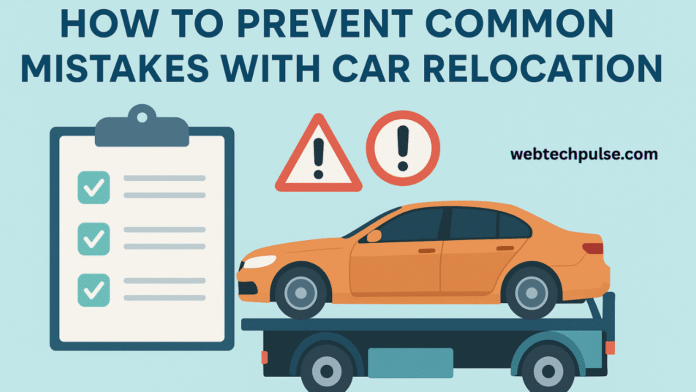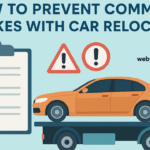Moving a car—across state lines or to a new city—first appears to be simple. Many car owners find too late, though, that car movement presents a particular array of difficulties. From concealed costs and tardy shipments to damage claims and misunderstandings about kind of service, the process is fraught with possible mistakes. Knowing the most frequent errors and knowing how to avoid them will help to guarantee your car arrives smoothly, safely, and with little tension at its destination.
Before picking a transporter, do your homework
Selecting the right vehicle transportation company is the basis of a trouble-free automobile relocation. Choosing the least costly quote without checking the credentials of the transporter is among the most common mistakes. Not every firm is licensed or insured, and some may not have the professionalism necessary for a simple transfer. Always verify for legitimate registration with the Department of Transportation (DOT), scan consumer reviews, and request proof of insurance. A respectable carrier will be open about their procedures and provide straightforward responses to your questions. Choosing a respected Car Shipping Ohio assures peace of mind and reliability for those relocating to or from Ohio.
Watch out for lowball quotes and concealed costs
It is tempting to accept the lowest online price you find. Still, suspiciously low rates usually include hidden costs or poor service. Some businesses may include fuel surcharges, delivery charges, or last-minute “expedite” fees never discussed. Some others could demand payment up front and then drag or complicate the shipping procedure. Ask for a thorough, written estimate that details all possible fees to avoid this. Watch out for any company that demands a substantial deposit before verifying a pickup date.
Know the kind of transportation you need
Not quite grasping the distinction between open and enclosed transit is yet another usual mistake. Although your car will be exposed to road debris and weather, open transportation is less expensive and ideal for most. Better protection and is perfect for high-end, vintage, or specialized cars, enclosed transportation offers Speak with the transporter about your requirements and be sure you understand which kind is most suited for your vehicle. Understanding your choices helps to prevent disappointment when your car comes.
Arrange Your Car Correctly for Transferring
Bypassing pre-relocation preparations can cause issues later on. Get all personal belongings out of the vehicle because the transporter’s insurance typically excludes them. Personal possessions might also change during travel, maybe leading to damage. Ensure your gas tank is around one-quarter full and record your car’s state with thorough photos from all angles. Sharing these photographs with your carrier offers proof should any damage-related disagreements develop.
Understand What Insurance Actually Covers
Many vehicle owners fall into the trap of misreading their insurance coverage. Although most reputable car carriers have liability and freight insurance, coverage amounts and deductibles can differ greatly. Request your carrier’s insurance policy copy and thoroughly examine the terms. Your own car insurance coverage can sometimes complement the carrier’s coverage. Understanding your relative position keeps you from getting angry if a claim is required.
Plan ahead to prevent delays
Often leading to delivery delays are last-minute reservations and rigid schedules. High-demand seasons or terrible weather can also affect travel times. To prevent letdown, schedule your vehicle relocation at least a few weeks in advance, especially if you need delivery by a specific date. Tell your transporter any time limitations and maintain an open line of contact during the procedure.
Clearly articulate your thoughts and ask questions
Confusion and troubles might arise from a failure of process assumptions or lack of communication. Ask questions about pickup and delivery windows, projected timelines, and who to reach in the event of a problem without reservation. Get all contracts in writing, including delivery dates, payment terms, and insurance information.
Eventually
Relocation of a car doesn’t necessarily have to be an anxious affair. Choosing a trustworthy transporter, knowing your service choices, getting your car ready, and proactively communicating will help you to avoid the most typically encountered hazards. Careful planning and a close eye to detail ensure your automobile reach its next destination safe, sound, and precisely on time.












